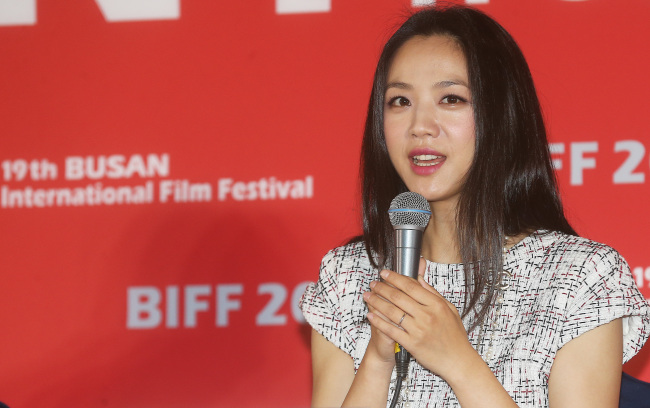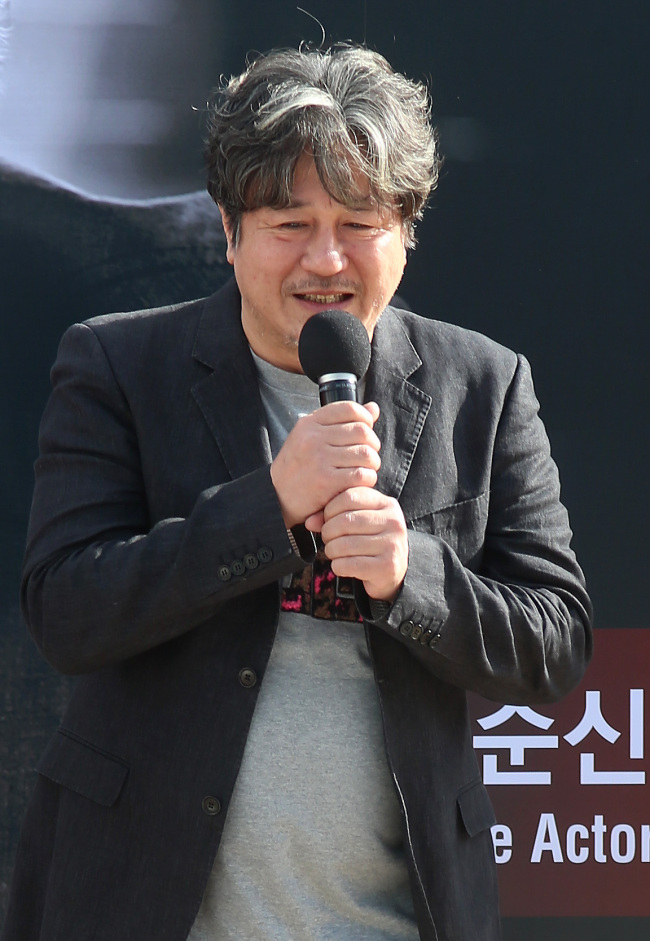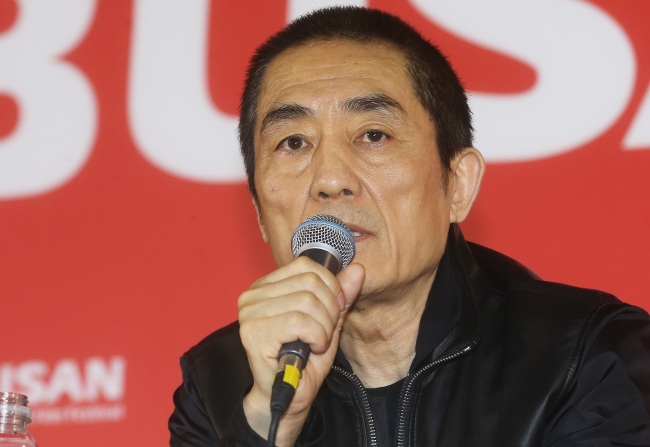BUSAN ― Chinese actress Tang Wei, during her visit to the 19th annual Busan International Film Festival, shared her thoughts and experiences on her role as Chinese literary icon Xiao Hong in director Ann Hui’s latest film, “The Golden Era.”
The Hong Kong film is a biopic of legendary Chinese writer Xiao (real name Zhang Naiying), who lived through a period of political turmoil in modern Chinese history from 1911 to 1942. Before the writer died at the young age of 32, she published many short stories and essays including “The Bridge” (1933) and “Tales of Hulan River” (1944).
 |
Tang Wei (Yonhap) |
“I realized I share many similarities with Xiao Hong,” the actress said at a press conference on Friday. “I am a very direct and straightforward person. Also, I did a lot of things that I wanted to do (growing up).”
Like Xiao, she was also influenced by her painter father and her grandfather, but was “very fortunate to be born in a very peaceful period (unlike Xiao),” she said.
Tang, 35, tied the knot with Korean director Kim Tae-yong in August. About her life and career, she said she was very grateful with her life.
“Movies are my dream, my religion,” said the actress. “I can say this is my ‘golden era’ with being able to express myself through films and have a chance to play Xiao Hong.”
By Ahn Sung-mi (
sahn@heraldcorp.com)
‘Roaring Currents’ actor says film’s popularity ‘unbelievable’
Choi Min-sik, the lead actor of a South Korean box-office hit about a 16th-century Korean naval hero, said Saturday that he was staggered by the fact that the film drew close to 18 million viewers in a country of 49 million people.
“Roaring Currents” has been seen by 17.6 million viewers as of Friday, according to the official box-office figures released by the Korean Film Council. In August, it became the most-watched movie at theaters in the country, breaking the previous record held by Hollywood blockbuster “Avatar.”
 |
Choi Min-sik (Yonhap) |
“I think an unbelievable thing happened,” the veteran actor said during an outdoor interview held at Haeundae beach as part of the 19th Busan International Film Festival underway in Busan.
The movie probably awoke the national hero, Adm. Yi Sun-shin, living in people‘s hearts, he said, adding that he takes Korean people’s craze for the film as an expression of their longing for the naval hero.
Directed by Kim Han-min, the historical drama tells the story of the Joseon Dynasty (1392-1910) admiral’s victory in the battle of Myeongnyang against Japan in 1597. In the decisive naval battle, Yi, who had 12 ships under his command, defeated more than 300 Japanese warships. (Yonhap)
Drector Zhang say his film captures human hope
Renowned Chinese director Zhang Yimou said Saturday he wanted to tell about the “inextinguishable” hope of mankind through “Coming Home,” his latest film about a long-awaited love.
Starring Gong Li, the period drama tells the story of a devoted married couple who is separated when the husband is sent away to a labor camp for his right-leaning thoughts during the Cultural Revolution, a period of political upheaval in China in the 1960s and 1970s.
 |
Zhang Yimou (Yonhap) |
“This is a story about waiting as a whole,” Zhang told reporters after a press screening of the movie during the 19th Busan International Film Festival. “I wanted to tell a story about the inextinguishable hope of mankind put in an extremely dismal and hard reality.”
Adapted from the novel “The Criminal Lu Yanshi” by American-based novelist Yan Geling, “Coming Home” premiered out of competition at this year’s Cannes and will receive a gala screening during the BIFF that runs from Oct. 2-11. (Yonhap)










